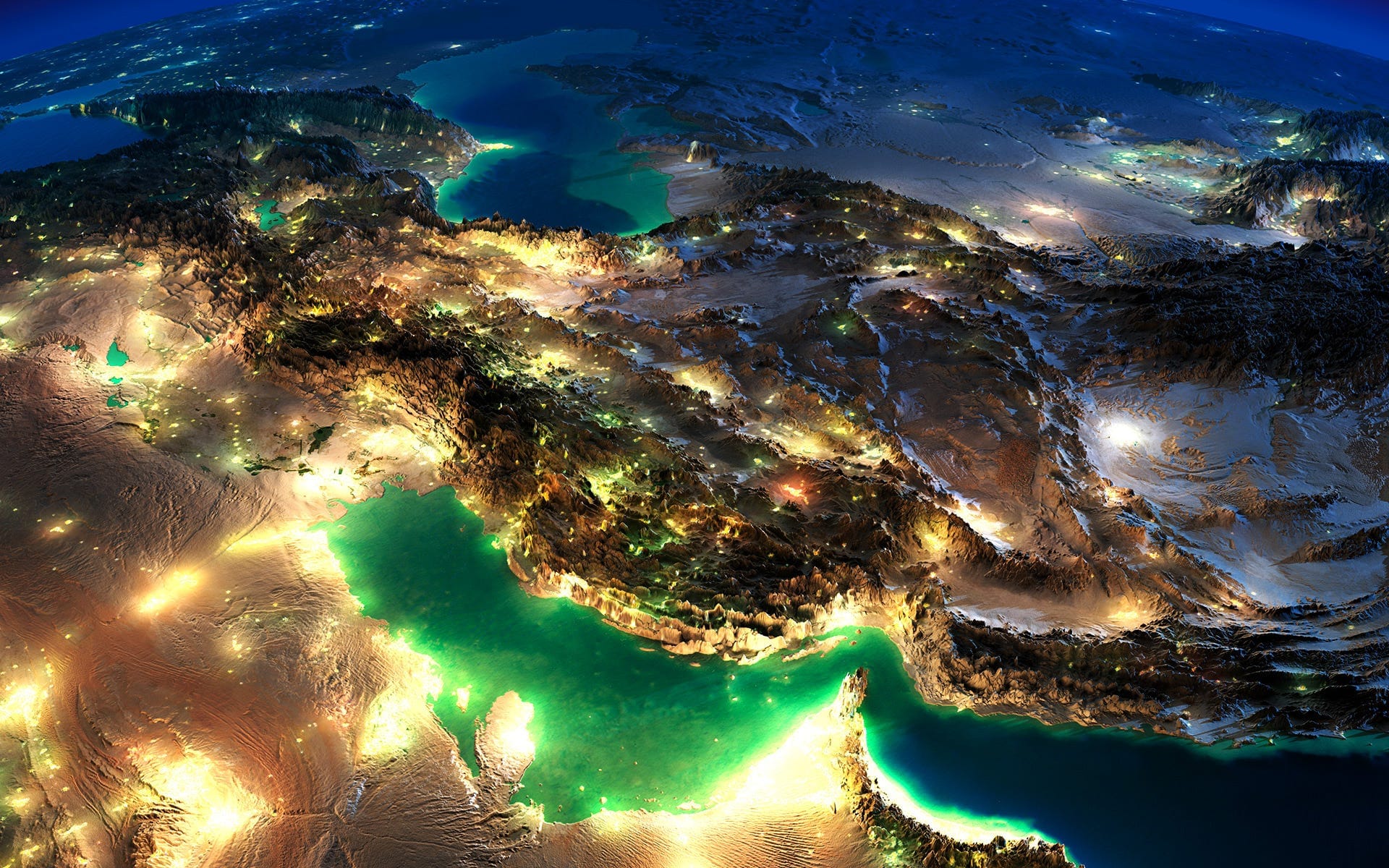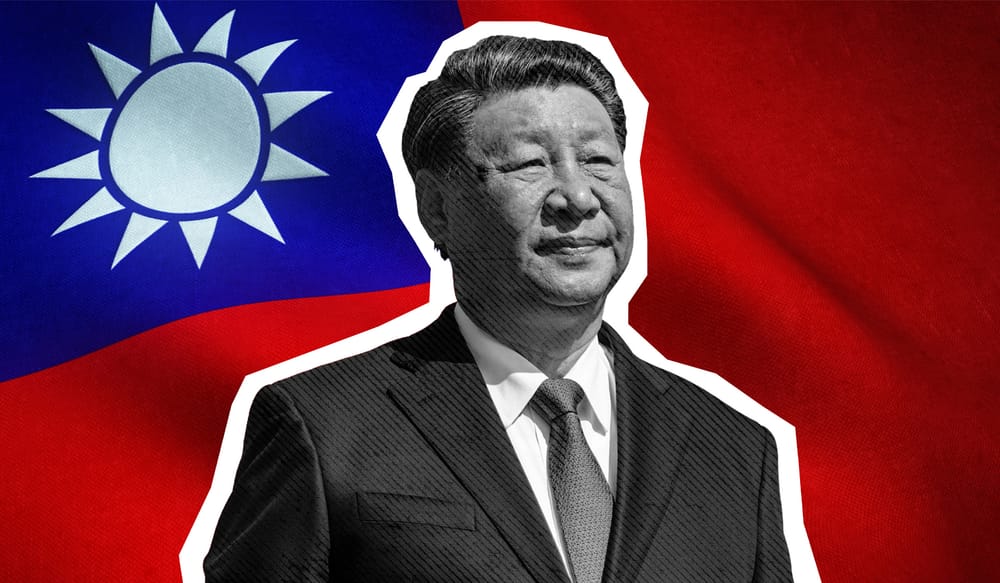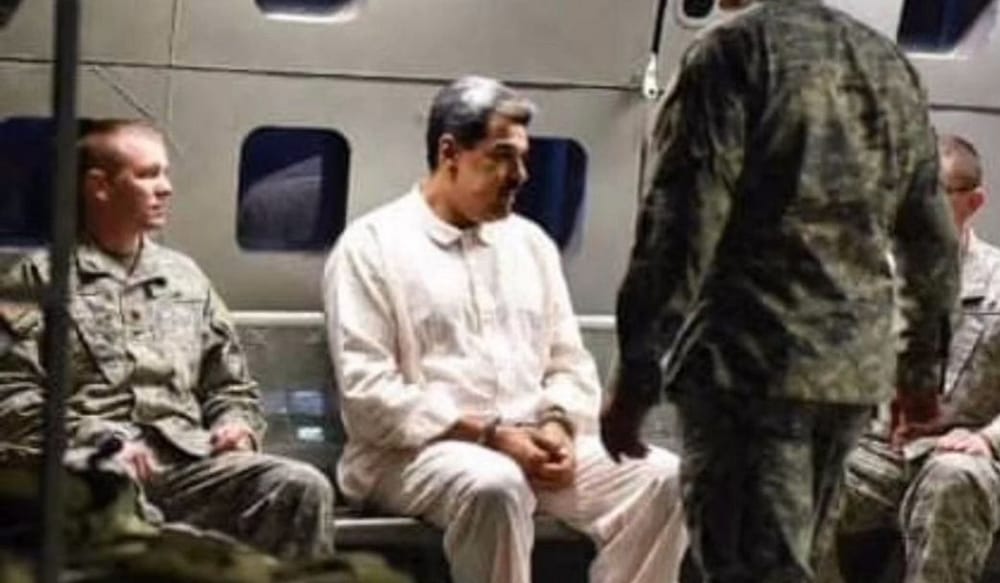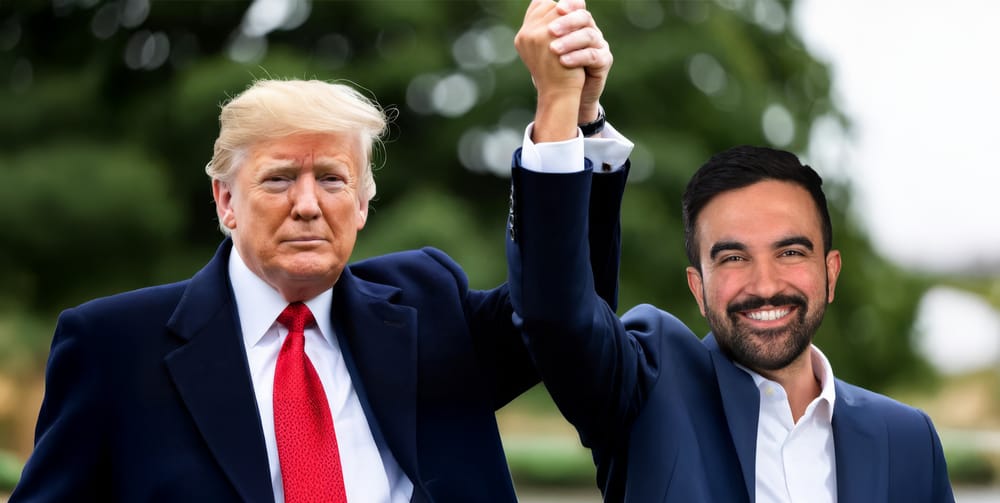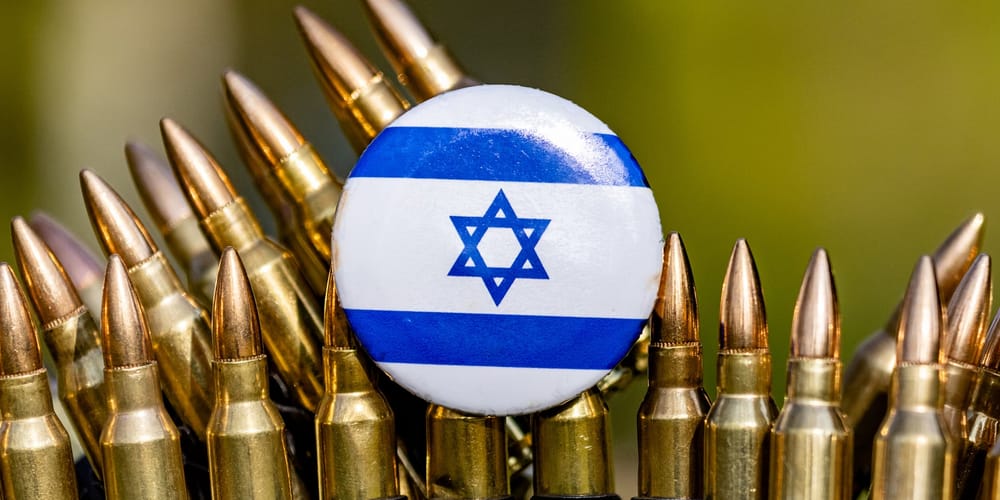The times of peace are upon us! The world rejoices, Iranians are celebrating in the streets of Tehran, John Kerry and Federica Mogherini hail it as a milestone achievement. But is it really?
Before I begin, let me make a confession - I love Iranians and I love Iran. Not for the politics, of course. It is, however, a magnificent country, with rich history, fantastic architecture and beautiful landscapes. Iranians are some of the most pleasant and friendly people I've ever met during my journeys - and I will happily come back to the country time and time again.
That said, however, I certainly do not trust Iranian authorities - and this lack of trust has a solid basis, which - unfortunately - has been completely overlooked in the P5+1 deal.
Nuclear weapons don't really matter (that much)
Let’s start with the biggest misunderstanding here – acquisition of nuclear weapons by Iran is hardly the most dangerous thing in the world. In fact – it’s hardly dangerous at all.
As terrible as they are, they have only been used once to win a military conflict – in the two explosions in Japan in 1945 - notably, against a country which could not retaliate.
Until somebody develops a system that can effectively destroy ballistic missiles (thus barring effective nuclear retaliation), the risk of them being put to use is very low simply because any such action would be met with an equal (and likely more serious) reaction.
Nuclear weapons, however, can be (and are) used for political leverage and deterrence. That’s how Russia uses them, that’s why Pakistan and India have developed them and so did North Korea.
In fact, a nuclear arms race is not necessarily bad for the world (nor the Middle East), because it allows nations to reach the height of military power that will successfully prevent any military attack by another state. Rivals are locked in a situation which prevents even conventional warfare. Would Ukraine have been invaded by “little green men” if it still had a few dozen atomic warheads? Doubtful.
It’s equally doubtful Iranian leaders would ever press the red button - even if they acquired such a capability - because that would result in their very own end as well. It would be downright suicidal. Nuclear weapons are most useful when they are a threat.
However, while Iran would gain some political leverage, acquisition of an atomic bomb doesn’t really improve its position that much. That is because it is almost impossible to invade.
Unlike Iraq, Iran is a mountainous country. Most of its nearly 80 million population lives in its central core, guarded by Zagros mountains along the Western frontier and Persian Gulf (reaching over 4000m above sea level) and Alborz in the North, with majestic Damavand soaring to over 5000m. To the East, along the borders with Afghanistan and Pakistan, lesser mountain ranges are accompanied by vast, inhospitable deserts and salt pans. Aside from a fairly easy corridor from Uzbekistan, Iran is very challenging for any ground invasion - therefore nuclear deterrence is hardly necessary, since even the US Army would find it difficult to penetrate and control its interior.
In essence, then, these negotiations have been about weapons Iran would find difficult to develop, hard to use in practice and which would grant it limited political leverage.
The real threat
When US president Bill Clinton - a Democrat and hardly a hawk on foreign policy - was tightening sanctions on Iran in 1995, it was not only because Iran had restarted its work on the Bushehr reactor - but also because of Iranian support for terrorist organizations in Lebanon and Palestine: Hezbollah, Hamas and Islamic Jihad.
It was at the same time where conclusion of two years worth of negotiations between PLO and Israel has been nearing, in the form of the 2nd round of Oslo Accords. The last thing needed in the peace process was meddling of a 3rd party - which has already caused much damage to this part of the Middle East.
Over the past 30+ years Iran has been a generous sponsor of various military and paramilitary organizations around the world - and remains one to this day. Recent Houthi insurgency in Yemen, support for Bashar al-Assad, regular rocket launches into Israeli territory by Hamas (which led to another ground incursion into Gaza last year) or its continued support for Hezbollah are all proof that its influence hasn’t waned, despite the sanctions. This is a very real, very tangible influence Iranian hardliners have in the Middle East - and beyond - being responsible for or aiding numerous attacks in the past three decades.
And yet, this part of Iran's activity was strangely absent from the P5+1 talks.
Western negotiators seem to have forgotten that the main reason Iran's nuclear program raised international concerns was precisely because of its history of support for international terrorism.
Let's remember that nuclear technology was first brought to Iran by the US, under Shah's rule. Even in the 90s Iran has never been found doing anything vastly different than other signatories of NNPT, developing peaceful nuclear programs in their countries. It is the context that raised the alarm in the West. That suspicion, coupled with Iranian reluctance to cooperate with IAEA controlers, triggered sanctions (in defense of the the Iranians - it's hard to blame them for being suspicious, given the history of US influence in their internal matters).
Post-Vienna, with better economy, Iranian leaders will have more money. More money will buy them more technology and, eventually, more weapons - not to mention tightening their military cooperation with Russia, what has already started this year with a treaty signed in January. More money will also buy them more influence and the new, more advanced, equipment is likely to take place of crude weaponry delivered to terrorist and insurgency groups in Lebanon, Palestine, Yemen, and to the Syrian government. Conventional arms embargo will last for only 5 years - a blink of an eye in politics, especially considering that some regional conflicts have been going on for decades. By that time Iran will grow stronger and wealthier, while continuing to develop its own military industry.
But the consequences of this deal go beyond that.
Iran's role in Central Asia
A stronger, open Iran, will trade even more with Russia and China, buying more weapons and selling more resources. At the same time China needs to increase its oil and gas imports using continental pipelines rather than sea - which exposes it to a potential military blockade in the event of a conflict with United States. As a result, Iran is certainly going to improve its position within Shanghai Cooperation Organization - possibly becoming a full member - getting even closer to Moscow and Beijing.
It is very ironic that after decades of trying to keep Iran out of communist influence it is now set to become a close partner of communist China and post-communist Russia headed by a former KGB agent, in a bloc controlling vast wealth of resources, extending from the borders of Europe to the Pacific and the Persian Gulf.
Strategically, it is a much broader blow to US interests - and to global stability. Russia will gain a new, serious market for its military technology, paid for by increasing inflows to Tehran’s coffers from Beijing.
Closer cooperation of this trio will make them less vulnerable to Western influence, allowing to pursue even bolder - and destructive - foreign policies - with Ukraine on fire, Chinese offensive in the South China Sea and Shia proxies in the Middle East.
US administration has managed to achieve quite a feat by setting free a partner Moscow and Beijing have been eagerly awaiting, triggering joy and satisfaction among several terrorist organizations and alienating its allies in Riyadh and Jerusalem. All that in exchange for limitations to a nuclear program that hardly could ever produce a real threat other than stronger deterrence.
So it's no surprise that Israel and Saudi Arabia are not really happy to see their key ally deal with a government that - at the very same time - supports organizations killing or aiming to kill their citizens - without addressing this issue in the negotiations.
And that is the great opportunity missed by these negotiations.
Sanctions against Iran allowed a good leverage to try and begin to solve broader Middle Eastern problems. Instead of tackling the most serious issues and bringing other key topics - and perhaps other states - to the table, it focused on the least concerning one, most likely to gain Obama and the Democrats some points before his departure and the upcoming presidential elections in the US next year.
Iran is the clear winner here. It hasn’t halted its nuclear program, just applied limitations that are hardly costly, while it has received its economy back - together with $100 billion in frozen assets - and, quite bafflingly, hasn’t even been questioned about its terrorism sponsorship in the process.
Considering it’s a result of nearly two years of negotiations between the top Western powers and a broken (and broke), isolated government, it seems to show that the weakness of the West is far greater than anybody expected.
While Israel has no other choice but to stick with the US, Saudi Arabia has been pushed to pursue a more independent foreign policy - something that seems to be a good idea, but only until you realize the potential consequences.
Undoubtedly, KSA is as responsible for the mess in the Middle East as Iran is, but it's a far wealthier and far more autocratic state than its rival. Hence, it can exert its power more effectively by channeling money and weapons to a far larger population of Sunni radicals.
What US administration has done here is push away one ally without gaining a new one. On the contrary - allowing Iran to grow and enter into lucrative economic relations with two other US rivals - Russia and China. Even Europe has gained more here, by opening up some possibilities of investment and trade with Iran. US left the table with nothing - while possibly (and likely) planting seeds for much worse proxy conflicts in the Middle East.
Where will it lead us?
Despite all these indications gauging the consequences of this deal remains quite difficult. The main reason behind this difficulty is the fact that - contrary to what mass media may suggest - Iranian authorities are not entirely autocratic nor monolithic. There are deep differences even in its predominantly conservative leadership. On one hand you have moderates and relatively progressive minds like Iranian president Rouhani. On the other you have hardliners concentrated around the Supreme Leader and the IRGC (who enjoy some degree of independence and maintain a tight security grip on the country).
Within this group in power there are conflicting views on the future of the country and some discourse takes place. Therein lies the question - whether government with Rouhani at the helm will be able to make the most of this deal and improving international relations to curb some more radical ambitions of their hardline opponents.
If it can, then there is a chance for a more peaceful future - but it seems unlikely without external pressure. Even more amicable Iranian politicians won't risk internal conflicts if neither them nor Iran can lose if they don't. That's why the tough UN sanctions could have been used to force Iran's hand. But this opportunity has been wasted.
I’m very happy for regular Iranians. As I said, they are lovely people and their country is truly astonishing. It deserves to be respected and they deserve to live in prosperity - and I sincerely hope they will. I'd like to see this deal bring more business and wealth to them, rather than to corrupt political elites. But unfortunately, none of that is certain - and there are even more concerns ahead.
Campaigning for reelection, Barack Obama said in Iowa in October 2012: “I've kept the commitments that I've made (...) I told you we'd end the war in Iraq. We did.” Two years later Iraq’s second largest city, Mosul, fell into the hands of ISIS and thousands of people have been massacred in northern Iraq since then.
That same year he warned Syrian regime that using chemical weapons would be a “red line” for the United States. When it happened in 2013 the Commander-in-chief failed to provide aid to his rebel allies in Syria and Assad was saved by Russian political maneuvering.
Today the US President claims: “This nuclear deal meets the national security interest of the United States and our allies.”
Mr. President, your allies already beg to differ with you on that. Let’s hope you are right at least this once - especially since you won’t be the one in charge of the clean up if you aren't.



